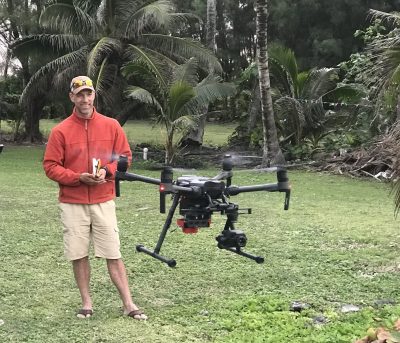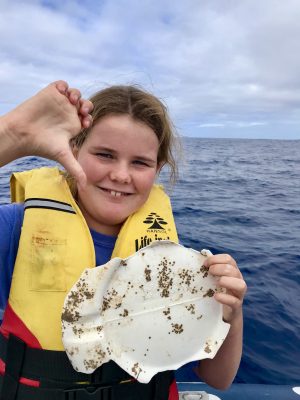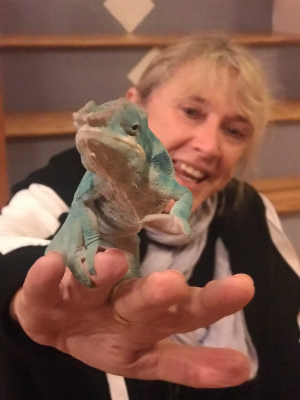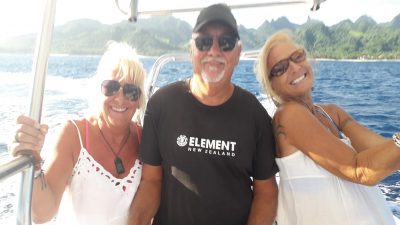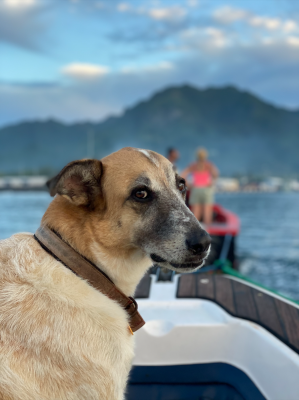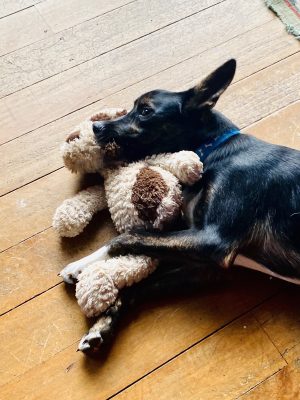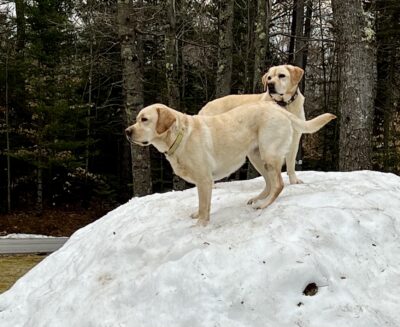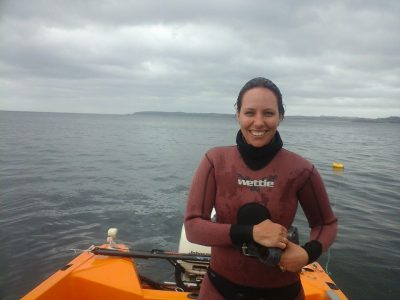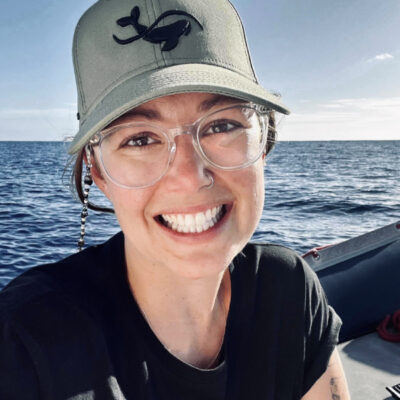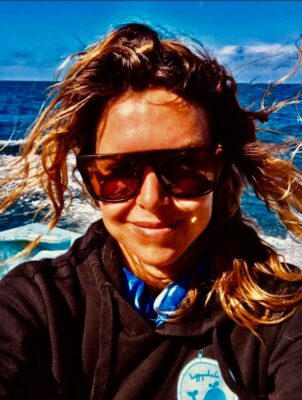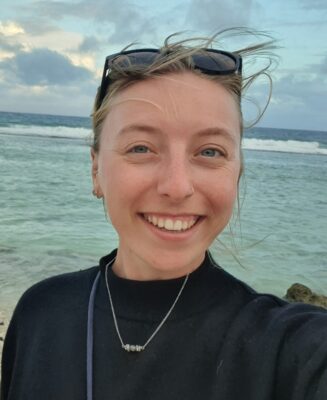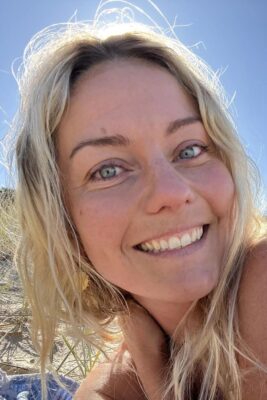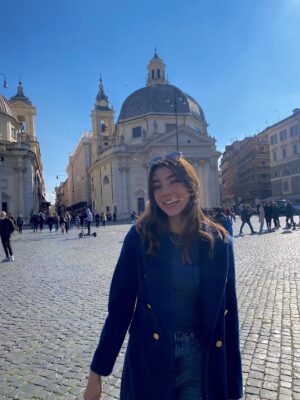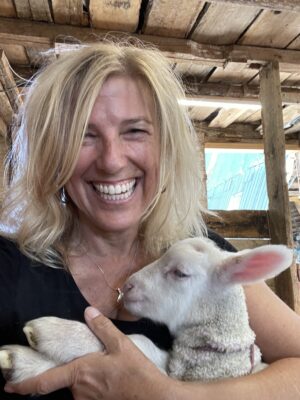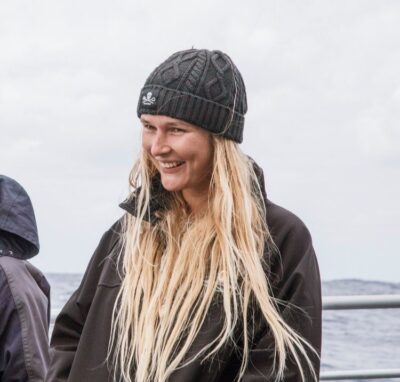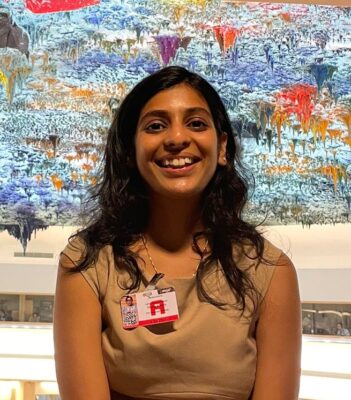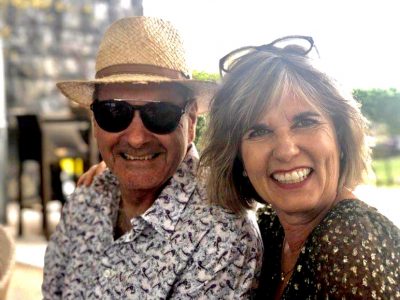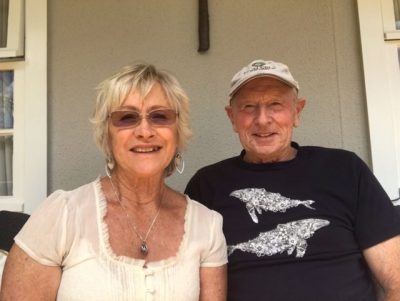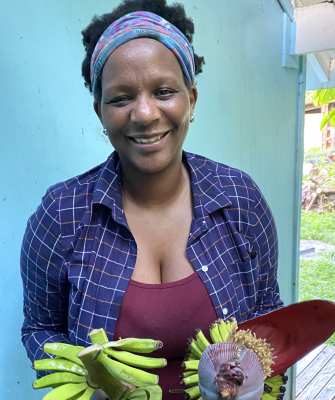Our Research Team
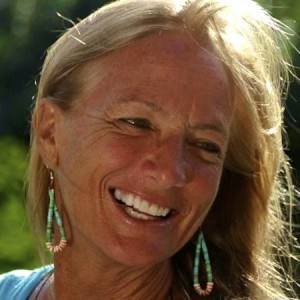
Nan Hauser
CCRC President & Director
CIWR Director & Principal Investigator
SPWRC Exec. Committee
Nan Hauser is the President & Director of the Center for Cetacean Research & Conservation and the Director & Principal Investigator of Cook Islands Whale Research. She resides in Rarotonga, Cook Islands, where she researches the population identity, population abundance, acoustics, genetics, stable isotopes, behaviour, migration and navigation of cetaceans. She satellite-tags whales to gather information on their migration over long distances. Nan is an Adjunct Professor at Auckland University of Technology and has taught on a global level for the Dolphin Research Center, Whale Conservation Institute (now Ocean Alliance), the New England Dolphin Outreach Project, the Cook Islands Whale Research Project, and many other non-profit organisations and Research Institutes. As a registered nurse, Nan practices and teaches medicine on Rarotonga and the outer islands, where she also visits the local schools and teaches the students about “Whales and the Importance of Protecting the Ocean”. She holds a US Coastguard Captain’s license.
Nan serves on the Executive Committee and is a scientific researcher for the South Pacific Whale Research Consortium. She played a major role in the creation of a 2 million square-kilometre whale sanctuary in the EEZ of the Cook Islands, and built a Whale Research & Education Center in Rarotonga. In the US, she has served on many Boards, including Cet Law and the Gulf of Maine Aquarium (now known as the Gulf of Maine Research Institute). Nan has been the focus of many Animal Planet, Discovery Channel, National Geographic, BBC, Terra Mater, ARTE, and Smithsonian films. She received a Lifetime Achievement Award from Wildlife Conservation Films, along with Sylvia Earle of Mission Blue and Khalid bin Sultan of Living Oceans, in November of 2014.
Research Team
Travis is a U.S.-N.Z. dual national residing in Christchurch, New Zealand. He holds a continuing academic staff position (Associate Professor) in the Department of Geological Sciences at the University of Canterbury. His teaching and research expertise is best classified as Environmental Earth System Science - he teaches across all levels of undergraduate and (post)graduate programs with an emphasis on geochemical/isotopic tracers of Earth system processes and conditions.
Travis's research includes astrobiogeophysical (i.e. Exo-Earth System Science) analysis of animal movements in a variety of spatial and temporal coordinate spaces, stable isotope (bio)geochemistry, and aqueous geochemistry.
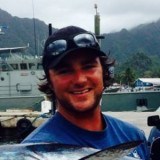
Cameron Thorp
Research Assistant
Cameron has spent most of his life on or in the water. His experience as a dive guide, captain, and fisherman has also helped to contribute towards whale research. Cameron and Ali have a daughter named Skyla who is also in love with the ocean!
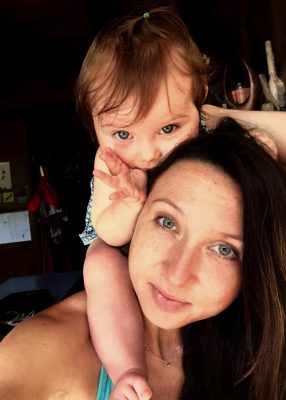
Ali Haible Thorp
Research Assistant
Ali has been on the team since she was 1 year old! She learned to walk down the ramp of the dolphin research center to go and visit her favorite dolphins, Annessa and Aleta. Her childhood took place mostly on the ocean assisting her mom, Nan, with her research. To this day Ali still helps with the project along with her husband Cameron and their young daughter. Ali is an avid freediver and ocean lover.
My name is Gracie. I am from Wellington, New Zealand. I live in Rarotonga now. I am 13 years old. I have loved all living things my whole life. I was called the “Bug Queen” at Playcentre. My family and I are all vegetarian. I really love dolphins because they are playful and intelligent, and I think we have a lot to learn from them. My favourite colour is purple and my favourite saying is: “I didn’t get my strength from lifting weights; I got my strength from lifting myself up when I got knocked down.”
Marisa is the Cooks Island Country Manager at Air New Zealand.
Experienced Leader with a demonstrated history of working in the airlines/aviation industry. Skilled in Operations, Management, Flight Safety, Airlines, Airports, and Commercial Aviation. Strong support professional graduated from Gisborne Girls High school and life!
Residing in Auckland, New Zealand, Frances is the International Director at Auckland University of Technology, where she also completed a Bachelor of Education. She accomplished a Graduate Diploma of Education Management at UNITEC, followed by the completion of the Management and Leadership in Education program at Harvard Graduate School of Education. Frances has devoted her time to education as a teacher, principal, and administrator for many years in New Zealand, and the Cook Islands. She has assisted Nan Hauser with whale necropsies on Mangaia, an island in the Cook Islands group, and continues to work with Nan. They are currently working to establish study abroad opportunities in Rarotonga for university students from the US, Europe, and Asia.
Marshall Humphreys
Research Assistant
Marshall was born in Gibraltar and raised in England. He managed hotels in New Zealand and the UK and went on to become a travel agent for 10 years.
In 1992 Marshall and his family moved to Atiu, where he looked after the population of kopeka birds and led cave tours. The kopeka is endemic to Atiu and one of only two bird species in the world that echolocates!
Marshall met Nan in Atiu in 2004 while she was making a film. He lived in Atiu for 26 years and then moved to Rarotonga. Marshall began volunteering with CIWR in 2020.
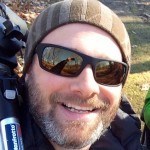
Jody Hartman
Research Assistant
Nan Hauser’s son, Jody, specializes in media creation with a focus in videography and graphic design. An adventurous childhood in pursuit of whales, extensive travel, and thrilling nature encounters led him down the path of creatively capturing and sharing his life experiences.
After many years in Boston working in the travel industry, and as a graphic designer/marketing coordinator for the New England Patriots, Jody has returned to his home state of Maine. He currently works in marketing and remains an integral part of our whale research team.
Something different: His dog, Stella, is more famous than her owner will ever be. Check out this video with almost 8 million hits.
Juliet Hartman was born in Brunswick, Maine in 1984. She has an identical twin sister Sara! Jody Hartman, Julie, and Sara spent so much time together that some people thought that they were triplets! The twins were 3 months old and Jody was 6 months old when they met from one grocery cart to another!
Julie graduated with a nursing degree in 2006 from University of Vermont and then married Jody. She worked at Massachusetts General Hospital until 2012. When Jody and Julie moved back to Maine in 2012, she began working at Maine Medical Center where she is still employed. They have 2 beautiful children, Lucas & Hannah and one more on the way! (Nan’s Grandchildren!)
Julie has been part of the whale research project since she was a teenager. She joins the team in the Bahamas, Rarotonga and New Zealand.
Julie loves to read, spend time with family and be out in nature.
We live in Pegasus, New Zealand and we are both teachers. In 2019, we lived in Rarotonga for 5 months and we became Nan's chief whale spotters! We had a beautiful view over the ocean and there was always a quick call to Nan on spotting a whale and she would be right there in her boat.
On many occasions we were invited to join the boat crew. We were also invited to work with the camera crew who came to film for National Geographic and the team from New Zealand who did amazing drone footage of the beautiful whales.
We had planned to return in 2020 but because of world events were unable to do so. We plan to return in the future. Nan keeps us up to date with progress and we love being part of the team.
Born March 8th, 1983 in Biddeford, Maine, Mandy is the second of four girls, and as the second child she was born to live life at it's fullest with a hunger for travel and adventure. After attending college for a brief period, she felt it was not for her and instead chose to explore the world. Mandy has lived in Greece, California, Florida among other places, meeting many new and exciting people along the way. With no formal art education, she is a self made artist, picturing things in her mind and putting them onto paper, walls or canvas. Aside from being an artist Mandy is currently studying at Maine Medical center to be a CNA. She also does Personal assistant work and organizing for The Whale Research Project.

Abigail Robinson
Research Assistant and Drone Operator
Abigail is currently pursuing a Bachelor of Applied Science and majoring in Biodiversity Management at Unitec, Auckland. She has a certificate of Animal Management and was an animal specialist at Crane Lake Camp in West Stockbridge, Massachusetts, where she was in charge of 40 animals of 15 different species. Abigail’s hardworking and self-disciplined personality has led her to do amazing work, such as being part of a production line testing crystals in Auckland New Zealand, and working at a construction site as an engineer’s project assistant. In 2014, Abigail became a research assistant on the Cook Islands, working for Nan Hauser studying humpbacks during the winter mating season (July through October). Abigail was in charge of operating the drone, verbally recording observations, collecting and labelling DNA, driving the boat, filming, and photographing whales both above and below the water, as she is a certified open-water scuba diver.
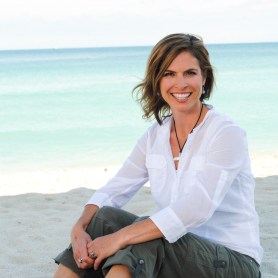
Natalie Barefoot
Research Assistant and Cetacean Law Expert
Natalie Barefoot is the Executive Director of Cet Law, a not-for-profit organisation that works in partnership globally with non-profits, businesses, and governments to translate sound science and best practices into practical legal solutions that protect whales, dolphins, porpoises, and their habitats. Natalie has worked with us since 2014, both on the boat as a research assistant and on land providing technical, legal, and project management support. Prior to Cet Law, Natalie worked as an attorney for the United Nations Environment Programme and Hogan Lovells, LLP. She has also worked in international development at Pact, Inc. in Harare, Zimbabwe, and Washington, DC. She is a PADI dive master, a AIDA2 Freediver, a witty conversationalist, and a lover of everything ocean.
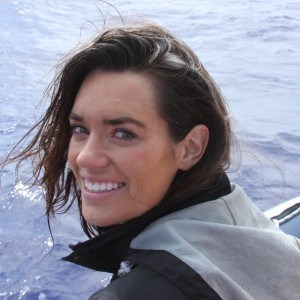
Laura Wells
Team Member
Laura is an environmentalist, presenter and one of Australia’s top plus size models. Holding degrees in both Biology and Law, qualifications in Environmental management systems and currently studying a Diploma of Paramedical Science; Laura’s passion for the environment, love for the ocean and interest in facilitating climate change action has led her to become a positive role model, advocate and ambassador for change.
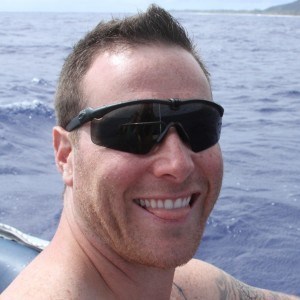
Jesse McNeilly
Team Member
Fire and Safety Advisor
Fire Protection Association of Australia Corporate Bronze Member
Fire Protection Accreditation Scheme
Advanced Diploma of Management
Diploma of Health and Safety
Dr. Michael Poole is the Founder and Director of the Marine Mammal Research Program at the Island Research Center and Environmental Observatory (CRIOBE, a biological research station of the University of Perpignan, France) in Moorea, French Polynesia. He is a charter member of the Society for Marine Mammalogy and a member of the American Society of Mammalogists.
Since 1987, most of Michael’s research has been focused on spinner dolphins native to French Polynesia, but he has studied humpback whales, rough-toothed dolphins, and several other species on 8 different islands.
Michael has provided reports on his research to the United Nations Cetacean Specialist Group of South Pacific Regional Environmental Program. Dr. Poole’s most profound success came about in May 2002, when after 10 years, French Polynesia’s government accepted his long-standing proposition and drafted legislation to create a whale and dolphin sanctuary within all of the territory’s Exclusive Economic Zone, which is an area half the size of the USA.
Julia has a B.A. in Information Design and was born in Germany, is based in New Zealand and inspired by whales. Julia joined the CIWR in 2022 and works as Head Research Assistant for Nan and the Cook Island Whale Research Project. She spends the time during the Humpback Whale Season from July to October in Rarotonga with in field research, coordinating and managing the research team and studying and understanding whales up close. As founder of we.are.tohorā, a brand raising awareness for whales and generating funds for the protection and conservation of whales, she also established a way of supporting the CIWR project monetarily through the 11-4-7 donation program of we.are.tohorā. Learn more here: www.wearetohora.com. In 2020 she accomplished her Marine Mammal Medic Training with Project Jonah in New Zealand and is ever since part of a group of volunteers - enlisted to help in case of a stranding. Her passion for whales and the protection of whales got ignited in early years as a child by the movie Free Willy and led her on a journey of exploration, discovery and astonishment. She is a whale lover, freedom seeker and change maker, highly motivated and always hands on – with her heart on the right place.
Gloria is a geospatial and data analyst. Having grown up surrounded by nature, Gloria has always had a passion for the ocean and been a strong advocate for environmental guardianship. She studied an environmental science and geography degree and now works as a geospatial and data analyst. She is back on the 2023 CIWR research team after working her first season in 2022. She sees the incredible potential for the love of whales to inspire people to nurture and cherish all life on our planet. The opportunity to work on the ocean and with cetaceans for her has been a dream come true!
Meet Francesca our ocean-loving resident sunflower. Born in Aotearoa New Zealand she was raised through her travels around the world from age 17. She completed two bachelor's degrees in Biological Science majoring in Marine Science and a Bachelor of Arts in Sociology at the University of Auckland. She’s a big fan of sustainable living, self-development, sailing, biodiversity, horticulture, dogs and whales. She has begun another degree in Midwifery in Australia’s east coast and holds a passion for life-death cycles, matriarch, community, and women's business similarly to Nan.
Callie is graduate of Swarthmore College who studied Neuroscience and English Literature. In college, she completed a 2 year neuroendocrinology-focused research thesis in Baugh Lab. There, she validated noninvasive water bath hormone (testosterone & estradiol) sampling methods in Spadefoot frogs (Scaphiopus couchii). She also worked as a research intern in the Acoustic Communication Lab at the University of Minnesota, performing field and lab work with Cope’s Gray Tree Frogs (Hyla chrysoscelis). Lastly, she interned in Harris lab at the University of Texas, studying the development of learning and memory in the mouse hippocampus. Callie has also worked as an Animal Care Specialist, Wildlife Intern, and Teaching Assistant for a collegiate Animal Behavior course. She currently works as a conservation and neuroscience podcaster for The Creative Process / One Planet Podcast. Callie is an avid SCUBA and free diver, and has always loved the ocean, whales in particular! She hopes to apply her knowledge of neuroscience and conservation to her work with the CCR&C.
Kia orana! Ella grew up in the migratory path of the West Australian humpbacks near the coastal town of Albany. She gauged the passing of time by the arrival of the whales, her first work experience was aboard a whale watching catamaran. Years later, when she told the Captain that she had been given the opportunity to move to the Pacific to study cetaceans, he simply replied “you were made for it”. It was people like this along her way that guided her towards studying BSc in Marine Science.
Supported by the New Colombo Plan scholarship as the Cook Islands fellow, she feels privileged to now be calling the South Pacific her home. She has just finished spending six glorious months in Tahiti, completing her PADI Dive Master, studying French, and witnessing the beauty of Polynesia. She is almost always in, on, under, and by the ocean. She'll be undertaking her BSc Honours research in affiliation with the University of the South Pacific, her project being the “Acoustic monitoring of humpback whale song and cetacean diversity in the Cook Islands”. She believes that each new piece of knowledge is a gift from the ocean. The data collected will contribute to the Marae Moana Marine Park Management Plan’s ability to identify and protect critical habitat for cetaceans.
Disha graduated in Business Management and is currently pursuing her MSc in Sustainable Development. She has previous experience working for Global tech giants and the United Nations Volunteer Programme as a project management consultant. Through her studies in sustainable development, she has realised the crucial role oceans play in human well-being! Ocean well-being is directly interlinked with the well-being of these humpack whales, and many other gentle giants who are a part of the ocean ecosytem. She wants to learn about the blue economy and the ocean ecosystem with the hope to raise awareness about whale conservation and research. She is excited to learn and explore the ocean working with one of her long-time sustainability heroes - Nan!
South Pacific Whale Research Consortium
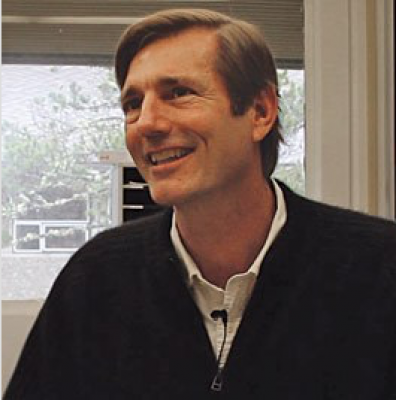
Scott Baker
SPWRC
Scott Baker is a Professor and Associate Director at the College of Agricultural Sciences, Oregon State University. He has a Bachelor of Arts in Environmental Studies, which he acquired at the New College of the University of South Florida in 1977, and a PhD in Zoology from the University of Hawaii in 1985. In the past, he has taught and done research at the Smithsonian Institute, the Laboratory of Genomic Diversity at the United States National Cancer Institute, Victoria University, the University of Hawaii, and the University of Auckland. In 2001, he was awarded a National Science and Technology Medal in recognition of his work on conservation genetics. Scott’s research and teachings are related to molecular and demographic forces that influence the diversity and allocation of natural populations, as well as particularly endangered or valuable species. Scott is a member of the American Genetic Association, the Society for Marine Mammal Science, and the Cetacean Specialist Group, IUCN. He is an editor for the Journal of Heredity, which is the official journal of the Genetics Society. Scott was also the New Zealand delegate to the Scientific Committee of the International Whaling commission.
Cornish by birth, Phillip Clapham accompanied a girlfriend to the US in 1980, stumbled into whale biology, and is presently acknowledged as one of the world’s leading experts on large whales. Having more than a quarter-century of experience with cetaceans, Phil also holds a PhD in Zoology from the University of Aberdeen in Scotland. He has worked at the Northeast Fisheries Science Center in Woods Hole and directed a long-term study of individual humpback whales at the center for Coastal Studies in Massachusetts. He now directs research at the Alaska Fisheries Science Center in Seattle, Washington, where he has advised many governments on whale research and conservation. Currently he directs a program of large whale research and advises the US National Marine Fisheries Service on science and conservation, both locally and internationally. He is an advisor to many Masters and PhD students, including Nan Hauser. He edits for three scientific journals: Marine Mammal Science, Mammal Review, and the Royal Society’s Biology Letters. He is a member of the US Delegation to the International Whaling Commission’s Scientific Committee. Phil has published four books and one hundred peer-reviewed papers about whales and other cetaceans.
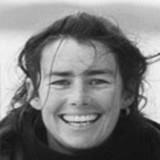
Rochelle Constantine
SPWRC Consortium Office
Rochelle’s interests are in applied behavioral ecology; in particular, the effects of tourism on dolphin behavior and conservation of large whale populations. Her research has been primarily concentrated on the population size, home range, habitat use, and effects of swim-with and dolphin-watching tourism on bottlenose dolphin population using the Bay of Islands, New Zealand. This study was initiated in late 1993. She is now focusing her research on testing hypotheses about social group structure and its role in spatio-temporal changes in habitat use in the Bay of Islands and Hauraki Gulf. Rochelle will be continuing a long-term study on the impacts of tourism on bottlenose dolphin behavior by examining the effectiveness of permit changes to the dolphins’ responses to swimmers and boats. Since 1995, she has been studying the humpback whales throughout the South Pacific (in particular Tonga and New Zealand) in collaboration with Professor Scott Baker and the South Pacific Whale Research Consortium. More recently, her interests and studies have expanded to include research on Bryde’s whales in the Auckland and Northland regions, part of a long-term project based at the University of Auckland since 1995. They are using GIS (ArcView) and photo-identification to determine the ranging patterns of these non-migratory whales, as well as collecting skin samples to determine the molecular ecology of this whale population that ranges around northern New Zealand. Most of this research relies on collaborations with a number of scientists (both in New Zealand and overseas), government agencies, tour operators, and non-government organisations.
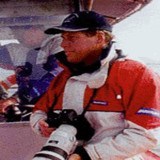
David Paton
SPWRC
David is an Adjunct Associate Professor at Southern Cross University and is attached to the Southern Cross Center for Whale Research. Before establishing the Center, David worked for more than 20 years for many different nature conservation agencies, including Queensland Marine Parks on the Great Barrier Reef, and New South Wales National Parks and Wildlife Service, where he was the Senior Manager. David has been conducting research on whales and dolphins since the 1980s, and his research has taken him to Australia and a range of countries in the South Pacific, including Tonga and Samoa. His research has also taken him to Hawaii, America, Canada, and Antarctica. David is currently coordinating several projects, including monitoring the recovery of the eastern Australian humpback whale population at Cape Byron. In 2001, David coordinated the very first whale and dolphin study of its kind to be undertaken in Samoa, with extensive involvement from local government agencies and non-government organisations.
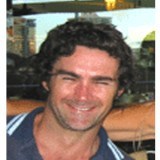
Michael Noad
Acoustician, SPWRC
Michael is one of several PIs on the Humpback Whale Acoustic Research Collaboration, or HARC, a large international collaboration looking at the perception and use of sound by humpback whales off the east coast of Australia. He is also interested in other aspects of the ecology of the east Australian population of humpback whales, cultural evolution and transmission of song patterns within and among populations of humpback whales, the development of acoustic survey techniques for cetaceans, the potential pathological effects of underwater noise on marine mammals, acoustic communication and behaviour in other taxa (particularly birds), and in the ecology of the leopard shark (Stegostoma fasciatum).
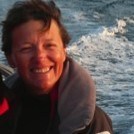
Claire Garrigue
SPWRC
Claire is an honorary research fellow at the School of Biological Sciences in Auckland University, Laboratory of Ecology and Evolution, where she studies the genetic structure of the humpback whales in New Caledonia. Claire has lived in the South Pacific since 1983 and has been a marine biologist at Institut pour la Recherche et le Développement (IRD) since 1989. She has been involved in programs in which she studied the benthic ecosystem of coral areas in Noumea. Claire is the founder and scientific advisor of Opération Cétacés, an NGO created in 1994, and created a research program on marine mammals in New Caledonia. Every year she manages a three-month field program that consists of four or five field assistants. Claire has represented New Caldonia at the IWC in 2000 and at the SPREP meeting in Apia in 2001. She has also done marine mammal research in Hawaii in 1996, and Canada in 1993. Because Claire is so passionate and dedicated, she creates projects to educate children and whale watchers about the conservation of marine mammals, and has written a book on the humpback whales in New Caledonia.
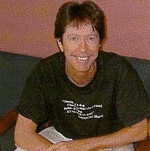
Michael Poole
SPWRC Exec. Committee
Dr. Michael Poole is the Director of the Marine Mammal Research Program at the Island Research Center and Environmental Observatory (CRIOBE, a biological research station of the University of Perpignan, France) in Moorea, French Polynesia. He is a charter member of the Society for Marine Mammalogy and a member of the American Society of Mammalogists.
Since 1987, most of Michael’s research has been focused on spinner dolphins native to French Polynesia, but he has studied humpback whales, rough-toothed dolphins, and several other species on 8 different islands.
Michael has provided reports on his research to the Unites Nations Cetacean Specialist Group of South Pacific Regional Environmental Program. Dr. Poole’s most profound success came about in May 2002, when after 10 years, French Polynesia’s government accepted his long-standing proposition and drafted legislation to create a whale and dolphin sanctuary within all of the territory’s Exclusive Economic Zone, which is an area half the size of the USA.
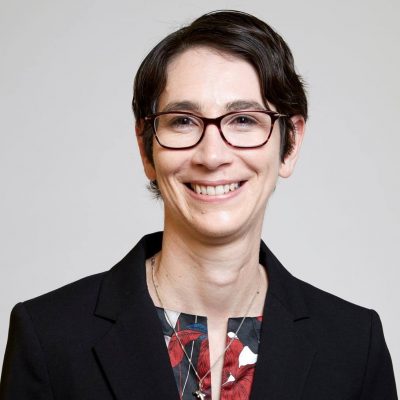
Ellen Garland
Ellen Garland is a Royal Society University Fellow in the School of Biology, University of St. Andrews. Her board research interests include animal culture, social learning, bioacoustics, and behavioural ecology. Her main research focuses on cetaceans, in particular the cultural transmission, vocal learning, and function of humpback whale song. She is also interested in vocal sequence analysis techniques and using similarity in vocal displays to define population structures for conservation management.
Debbie Dietrich-Steel
Board of Directors
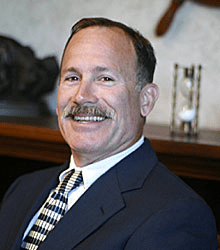
Weld Butler
Board Member
Weld Butler serves as Principal and Senior Advisor at Harbor Advisory in Portsmouth, New Hampshire. Weld has over 20 years of experience providing families with investment services, estate planning expertise, and counsel on wealth-related financial decisions. After graduating from Colby College with a BA in economics, Weld made an early lifestyle choice and moved out west to follow his passion for skiing. To support his lifestyle, he spent a number of years selling real estate near Jackson Hole, Wyoming. In 1984, Weld decided to return to New England to work at his father’s investment firm. Weld’s father, Robert G. Butler, founded Harbor Advisory, an independent wealth management firm in 1972. At his father’s request, Weld first attended the Johnson Graduate School of Management at Cornell University. Weld is an avid outdoorsman and mountain climber. He has climbed Mount Chimborazo in Ecuador, as well as a number of other Andean Peaks. In good weather, Weld has been known to kayak to work. He currently resides with his wife, Sarah, and two sons in Eliot, Maine.
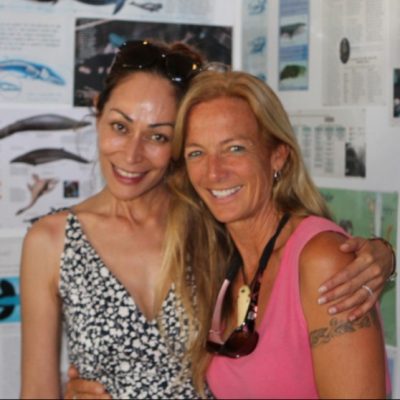
Christine Greene
Board Member
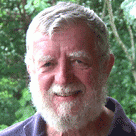
Tap Pryor
Board Member
Tap graduated from Cornell University in 1954, and then joined the US Marine Corps as a naval aviator, serving in Parris Island, Quantico, Pensacola, and MCAS Kanehoe, Hawaii. He attended graduate school in 1957 and studied marine biology at the University of Hawaii during the founding of the Ocean Institute Sea Life Park and the Makai undersea test range (now Makai Ocean Engineering). Tap was elected Senator of Hawaii in 1965 and served as chairman on the Committee for Agriculture, Forestry, and Conservation.
At age 35, President Johnson named Tap one of 11 commissioners to the President’s Commission of Marine Science, Marine Engineering, and Marine Conservation. In 1968, Tap and Gosta Fahlman developed Aegir, an undersea habitat that fit 6 people. In the same year, they developed the first Plexiglas Submersible, which was tested off Makapuu Port along with Aegir. Pryor and Fahlman also invented Star II, a diver-operated pontoon platform for launching and recovering submersibles, enabling them to operate in all weather. Star II logged more undersea work than any submersible in the world. In 1968, Tap was named Salesman of the Year by Hawaii in recognition of his promotion of the state, and a place for Marine Science and Engineering Development. He created and operated the System Culture Seafood Plantation at Kahuku on Oahu, principally the production of feeding oysters. His product, the Hawaiian oyster, was named the Outstanding New Product introduced to Europe in 1981 by the Cologne Food Fair. Soon after, he joined the Aquanatics Corp, then an NYSE-listed company as VP of research. In 1989 he moved to the Cook Islands and joined the Office of the Prime Minister as Director of the Special Projects Division, and later was the Media Director and Deputy Chief of Staff.
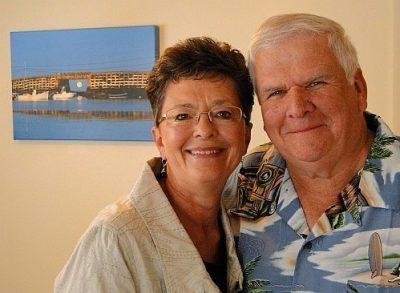
Ann and Bob Hutchins
Board Members
“Living in Coastal Maine surrounded by natural beauty provides a creative climate full of history and colorful opportunities for the eye of the artist and the camera lens. I have always loved the challenge of presenting my view of the world in a new and unusual way.”
- Anne B. Hutchins
“Memories are preserved, emotions are stirred.”

Laura Wells
Board Member
Laura is an environmentalist, presenter and one of Australia’s top plus size models. Holding degrees in both Biology and Law, qualifications in Environmental management systems and currently studying a Diploma of Paramedical Science; Laura’s passion for the environment, love for the ocean and interest in facilitating climate change action has led her to become a positive role model, advocate and ambassador for change.

Jesse McNeilly
Board Member
Fire and Safety Advisor
Fire Protection Association of Australia Corporate Bronze Member
Fire Protection Accreditation Scheme
Advanced Diploma of Management
Diploma of Health and Safety
Helen and Bill Nicita
Board Members
Bill and Helen own and operate Imaginus Inc., a broad based corporation that’s included:
International distribution of fine art posters via colleges & universities, Helen’s all-woman interior/exterior painting for 25 years, and Bill’s 5 years working R&D and script development for Cruise/Wagner Productions.
During the last 40 years, they've raised 5 children in Brunswick, Maine and are expecting their 11th grandchild in 2021. For the past 15 years, they've been property managers of 85 units in town for several landlords.
Our awe inspiring event was in the Bahamas doing beaked whale research with Nan. We'd spent days searching the waters in the merry month of May, when we observed Bill, lying face down on the boat's bow, scanning the horizon... when...
A beaked whale emerged from below, popping its head to within a yard of Bill's face. Time stopped. We exchanged stares. It was life changing for us!
We all have so much to learn from these wondrous mammals and count ourselves privileged to know Nan and participate in her organization.
Kay and Rick Beveridge
Board Members
Flora, currently the Licensed Branch Manager for Key Bank in Brunswick, earned her Bachelor degree in Social Science from Moi University in Eldoret, Kenya. While a student, she worked with the UNHCR office. After graduating she worked for the Kenyan Ministry for Foreign Affairs, helping with the Somalia Peace Process from 2002-2006. She later worked as a Communications Consultant in Columbo, Sri Lanka. After coming to the United States, she worked in financial advising with Morgan Stanley, HSBC and Key Bank. She holds an Executive MBA from the University of New Haven. She has 3 children, the oldest is at USM.
Collaborating Scientists
We are able to achieve so much more when we collaborate with other scientists and work together towards the same goal. CCRC is honored to get to work alongside these and other amazing scientists. Read about some of our collaborating scientists below!
What We Do
CCRC raises public awareness of marine conservation issues, especially those concerning cetaceans, through the following four activities:
I. For the past two decades, CCRC educators have informed, involved, and inspired people about whales, dolphins, and the marine ecosystems they inhabit. Interactive educational presentations are tailored to groups of various ages and experiences. Outreach programs reach a wide range of community groups. Curriculum enrichment programs educate and involve students ranging from kindergarten to graduate school. Programs combine slides, acoustics, videos, and hands-on experience. Outreach programs are offered throughout New England, New Zealand, Australia, across Oceania, and elsewhere as our schedule allow.
II. CCRC offers first-hand experience in cetacean research and conservation through internships and volunteer opportunities. CCRC’s researchers have engaged numerous volunteers and interns over the past 26 years in the day-to-day operation of dolphin outreach and research projects around the world, a reciprocally beneficial arrangement that is integral to CCRC’s operation.
III. CCRC publishes its findings in both professional and popular formats through various media. Contributions vary from scientific to anecdotal and appear in publications ranging from peer-reviewed journals to mainstream magazines. CCRC also generates news stories for the internet, television, print, and radio broadcasts. CCRC contributes cetacean content and imagery to several prominent websites, television stations, news broadcasters, and film companies.
IV. CCRC produces educational documentary films for television, conveying marine conservation issues and information to broader audiences with documentary films. Over the past two decades, CCRC has contributed to numerous natural history documentaries which have been broadcast on major networks. CCRC is currently the focus of a television documentary on the intelligence of whales.
Contact us today to find out more about the Center for Cetacean Research and Conservation and our conservation efforts.


